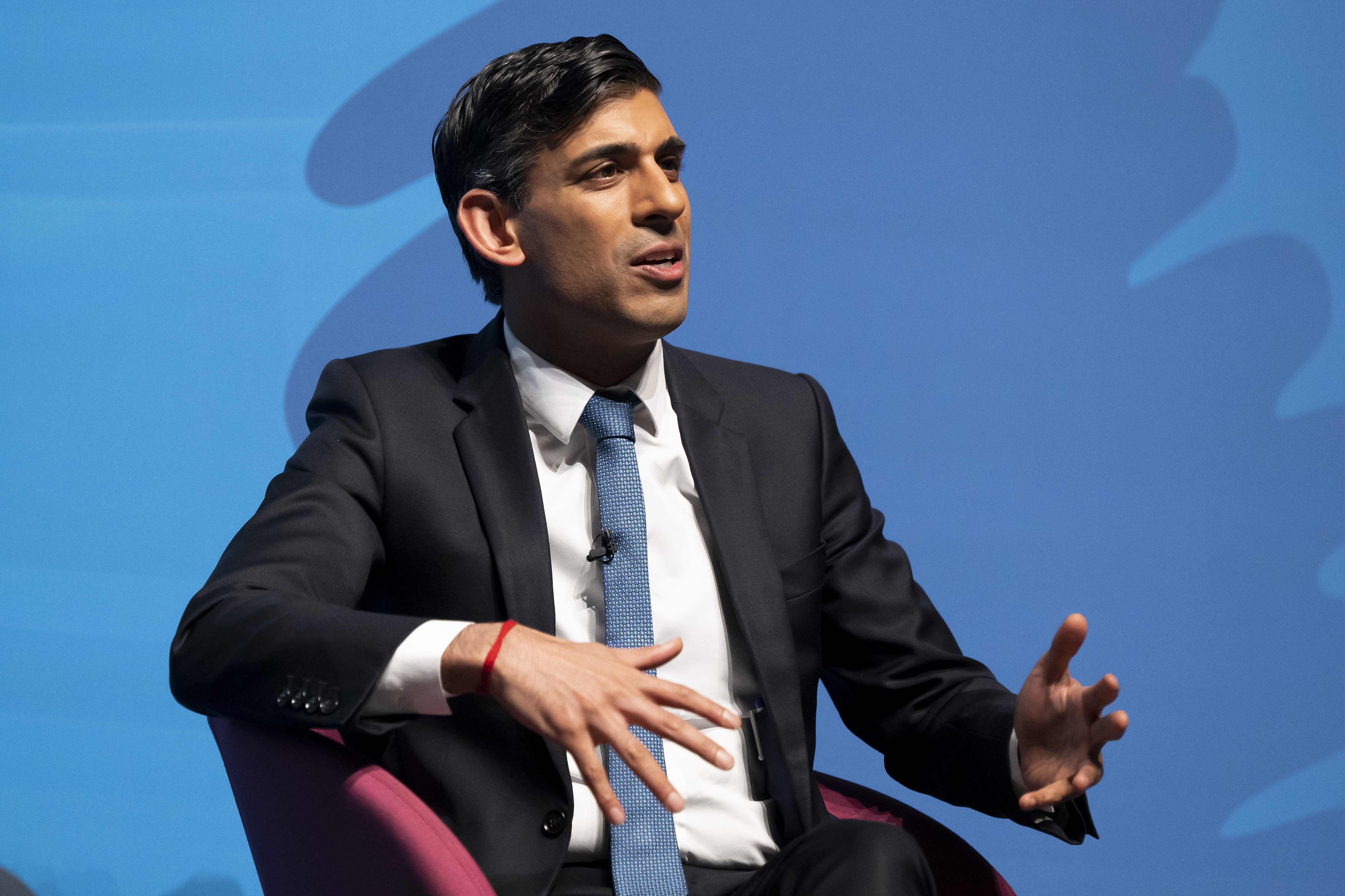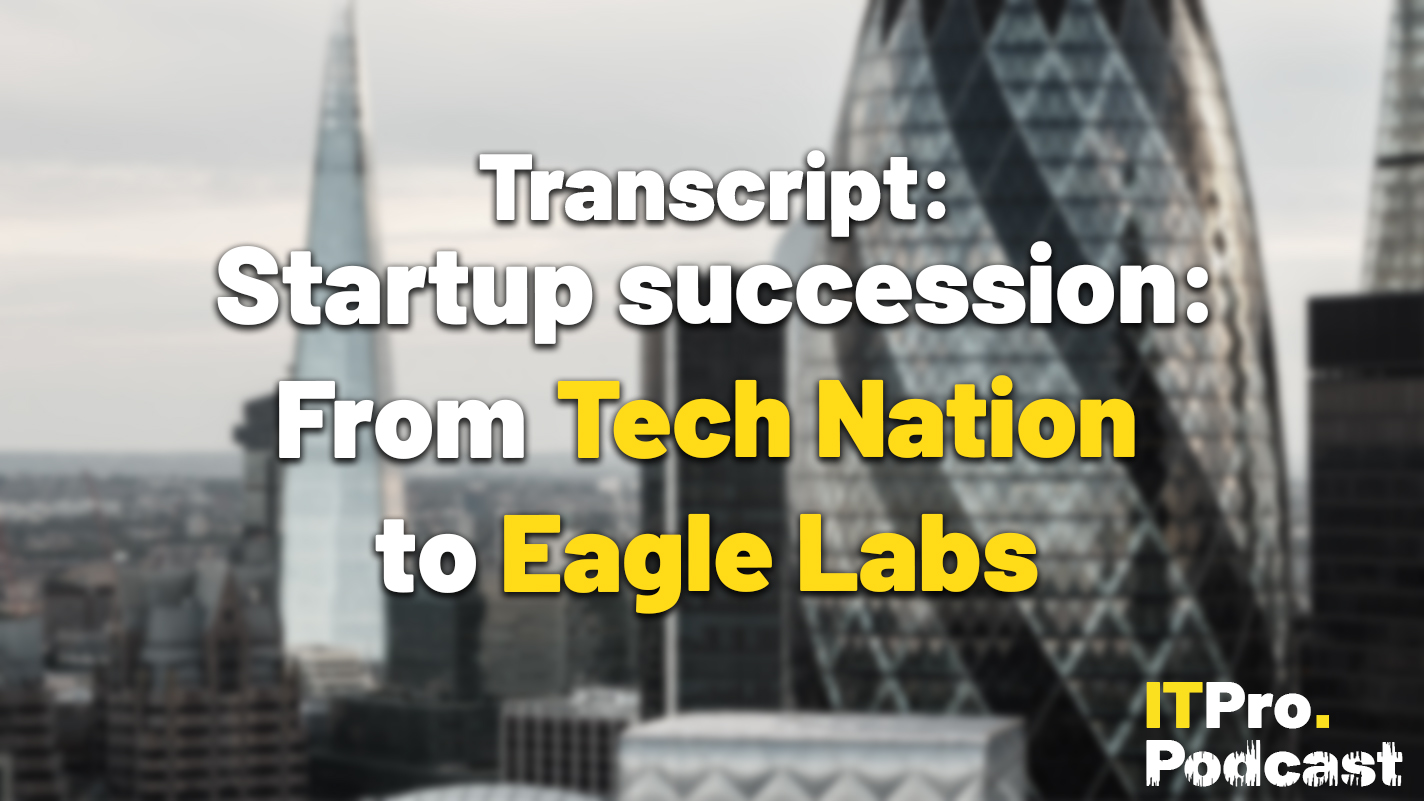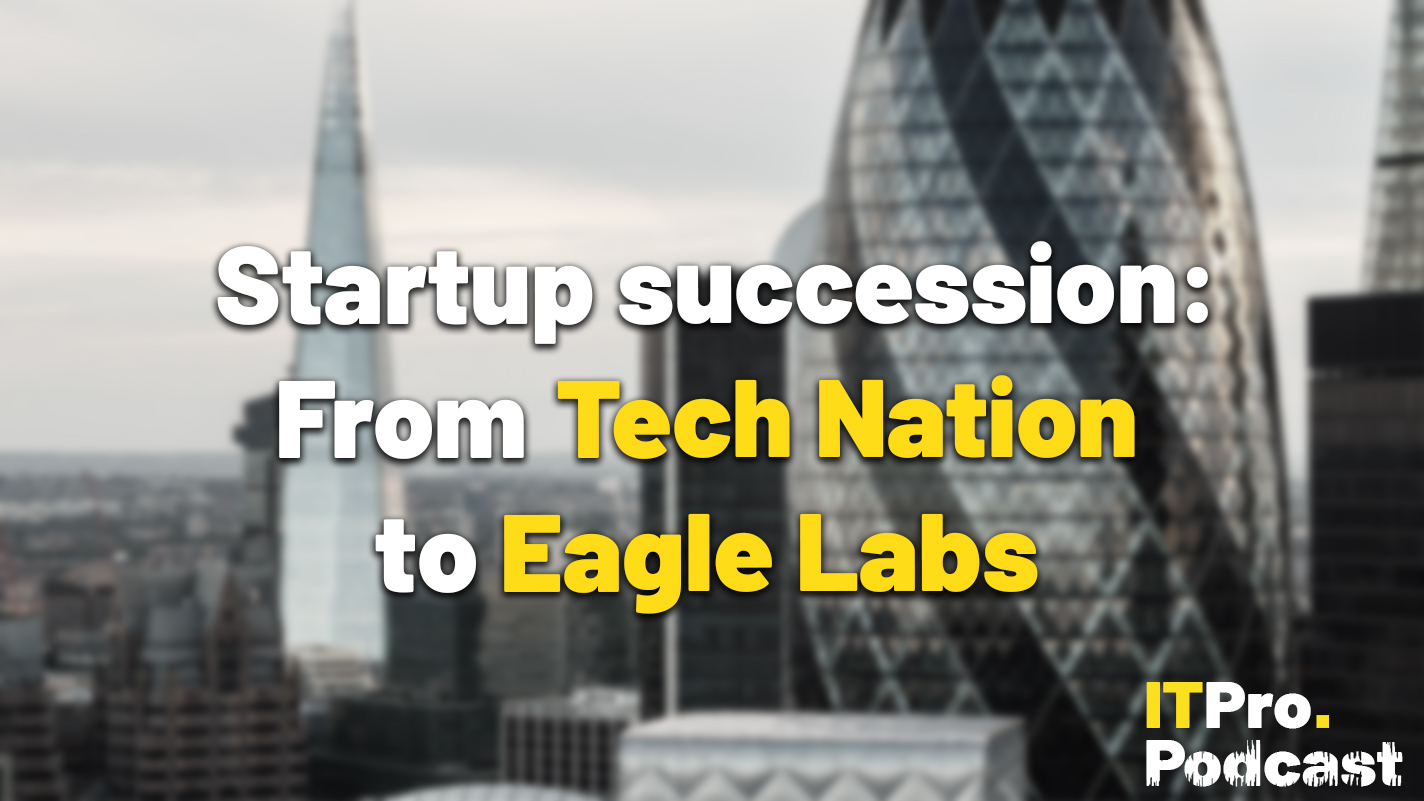More widespread tech hubs means more innovation
Tech companies and investors should learn to think beyond Silicon Valley and London's Tech City


The technological revolution of the last few decades has become synonymous with the insular world of Silicon Valley the startup culture and the unwavering focus on 'changing the world' with innovation that lives within it, but also criticism regarding a perceived lack of diversity and accessibility. In the UK, as with many industries, London is widely perceived as leading the way but, of course, this isn't the full story.
Gerard Grech, chief executive at Tech City UK, says: "London, now the digital capital of Europe, was the original Tech City. It saw this opportunity by connecting various industries, such as the financial services sector to tech, to accelerate the growth of fintech.
"Manchester, Birmingham, Edinburgh and others are developing strong tech clusters with emerging specialisms such as EdTech, GovTech and Big Data. By accelerating growth and connections in and between tech clusters across the UK, we can build a network of digital excellence which reflects the country's standing as a globally leading digital economy."
Building outside the bubble
As the world takes steps towards a new reality we couldn't even has imagined 20-years ago, the question increasingly becomes whether the tunnel vision that comes from focusing entire industries in single locations is helpful or harmful in the long run.
If the UK could exit this mindset and diversify focus across cities like Manchester, Dublin or Edinburgh and New York and others in the US then it would boost not just geographical diversity, but also a diversity of skills, background and more.
Mark Collin, group director at ThoughtWorks Ventures, which is based in the Federation House co-working space in Manchester, says: "There are many dimensions and factors that will contribute to city innovation, start-up growth and successful new talent.
"Location is important, but it isn't the only factor for startup success. With 90%-plus of all startups and scale-ups failing in their first three years, this is a problem that needs addressing if UK cities are to meet the high bar set by China and North America who engender a spirit of entrepreneurship early on, and foster that through digital hibs, clear access to investment and thriving technology innovation and mentoring."
Get the ITPro daily newsletter
Sign up today and you will receive a free copy of our Future Focus 2025 report - the leading guidance on AI, cybersecurity and other IT challenges as per 700+ senior executives
But not everyone is convinced that Silicon Valley as a fostering ground for rapid innovation is a negative thing.
Alex Caccia, CEO and co-founder at drone startup Animal Dynamics, tells IT Pro: "The Silicon Valley bubble is really just a symptom of the success of the Silicon Valley ecosystem, which has resulted in vast wealth creation, driving up values. But the underlying principles remain, and are effective and instructive.
"The driving force is a combination of skill, culture and capital, concentrated around a small location. It's the concentration of these that is key. Silicon Valley's success depends on the speed with which ideas are considered, rejected and, when accepted, scaled and this happens face to face. The question for the UK is what we can do to increase the speed of the cycle? Regional hubs are not the answer."
The only way a model of diverse, global tech hubs working together can exist is to improve and streamline the tools needed to do this, Caccia adds. Affordable housing is key, as are transport links that allow for the same pace of innovation and failure that Silicon Valley has created.
"Aside from transport and infrastructure, the largest barrier is still cultural: there's still a low appetite for risk in the UK, meaning it's tough to recruit people out of established companies into startups, and this puts a break on scaling," he continues. "Facilitating movement between industry, academia and startups requires a shift in mindset."
Increasing diversity to increase innovation
It's widely accepted in theory, at least that the more diverse your workforce the easier innovation tends to come. This idea also applies to an idea as big as tech clusters, as it stands to reason that a more accessible environment will lead to outcomes that wouldn't be considered otherwise.
"Diversity of gender, race and culture in the digital tech sector is vital if this sector is to produce companies which can sustain innovation at pace and scale," says Grech. "Innovation can come from the place you least expect it."
Liam Ryan, managing director of SAP Ireland, adds: "To ensure the future of the tech industry continues in the same trajectory, we need today's leaders to ensure we continue to uphold diversity and draw on expertise from all corners of the globe. That means investing in local communities to empower the next generation, and providing ample opportunity for talented people to develop their skills and knowledge."
It does appear that things are beginning to shift, with 2017's Tech Nation report revealing that almost 70% of total UK digital tech investment in 2016 was in regional clusters, which translates to 4.6 billion. The top six of these include Edinburgh, Cambridge, Bristol and Bath, Oxford, Manchester and Sheffield.
"We see many incubator-type work spaces and hubs that provide great space, but that alone will not stimulate and grow a city's digital economy," said Collin. "By connecting the dots, through a sense of co-operation, collaboration and connection, we will not only create amazing new workspaces but bring together the public, private, third sector and startups to solve real world problems for the citizens of our cities, which provides the common goal for these organisations to do more than just cohabit."
Not only does a more diverse tech industry create jobs in areas that need them, for example in the North of England, but it also has the potential to lead to new ideas, software and technology that can truly fulfil the Silicon Valley ambition to change the world. However, it's clear that work still needs to be done to achieve this.
"It's difficult to predict the future because the digital industries, by their very nature, are moving so quickly," sayd Katie Gallagher, managing director of Manchester Digital. "Up and coming tech innovations for example in AR are set to revolutionise our entire world, so there's everything to play for in terms of who (or where) will lead the charge."
Main image credit: Bigstock
Caroline has been writing about technology for more than a decade, switching between consumer smart home news and reviews and in-depth B2B industry coverage. In addition to her work for IT Pro and Cloud Pro, she has contributed to a number of titles including Expert Reviews, TechRadar, The Week and many more. She is currently the smart home editor across Future Publishing's homes titles.
You can get in touch with Caroline via email at caroline.preece@futurenet.com.
-
 Should AI PCs be part of your next hardware refresh?
Should AI PCs be part of your next hardware refresh?AI PCs are fast becoming a business staple and a surefire way to future-proof your business
By Bobby Hellard
-
 Westcon-Comstor and Vectra AI launch brace of new channel initiatives
Westcon-Comstor and Vectra AI launch brace of new channel initiativesNews Westcon-Comstor and Vectra AI have announced the launch of two new channel growth initiatives focused on the managed security service provider (MSSP) space and AWS Marketplace.
By Daniel Todd
-
 Is Rishi Sunak’s ‘Unicorn Kingdom’ a reachable goal or a mere pipedream?
Is Rishi Sunak’s ‘Unicorn Kingdom’ a reachable goal or a mere pipedream?Analysis Plunging venture capital investment and warnings over high-growth company support raise doubts over the ‘Unicorn Kingdom’ ambition
By Ross Kelly
-
 Some Tech Nation programs could continue after Founders Forum acquisition
Some Tech Nation programs could continue after Founders Forum acquisitionNews The acquisition brings to a close a months-long saga over what the future holds for Tech Nation initiatives
By Ross Kelly
-
 Podcast transcript: Startup succession: From Tech Nation to Eagle Labs
Podcast transcript: Startup succession: From Tech Nation to Eagle LabsIT Pro Podcast Read the full transcript for this episode of the ITPro Podcast
By Rory Bathgate
-
 The ITPro Podcast: Startup succession: From Tech Nation to Eagle Labs
The ITPro Podcast: Startup succession: From Tech Nation to Eagle LabsITPro Podcast Some small firms are already lamenting the loss of Tech Nation, but Barclays Eagle Labs has much to offer the sector
By Rory Bathgate
-
 Don’t count Barclays Eagle Labs out just yet – it can deliver in ways Tech Nation never has
Don’t count Barclays Eagle Labs out just yet – it can deliver in ways Tech Nation never hasOpinion Tech Nation has a great track record, but Eagle Labs has the experience, the financial clout, and a clear-cut vision that will deliver positive results for UK tech
By Ross Kelly
-
 UK tech sector could face a ‘unicorn winter’ amid spiralling economic conditions
UK tech sector could face a ‘unicorn winter’ amid spiralling economic conditionsNews Tech Nation’s final piece of industry research calls for action to support continued ecosystem growth
By Ross Kelly
-
 "It's still not great": Industry divided on government's SMB tax relief package
"It's still not great": Industry divided on government's SMB tax relief packageNews The government’s handling of R&D tax credits has left SMBs with a “sense of disbelief”
By Ross Kelly
-
 UK startup's Equinix deal marks step towards broad quantum computing access
UK startup's Equinix deal marks step towards broad quantum computing accessNews Businesses around the world will be able to use its quantum computing as a service platform through Equinix
By Zach Marzouk